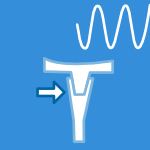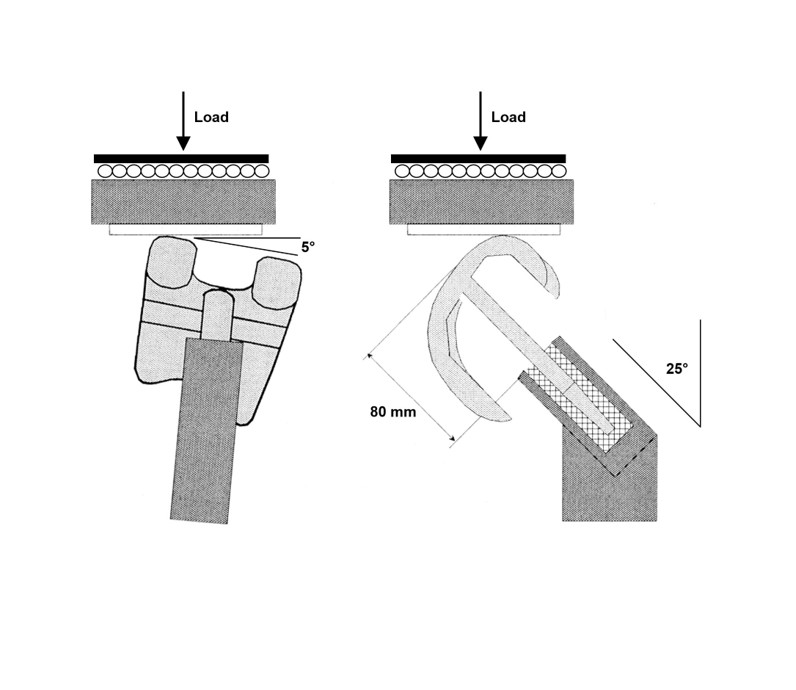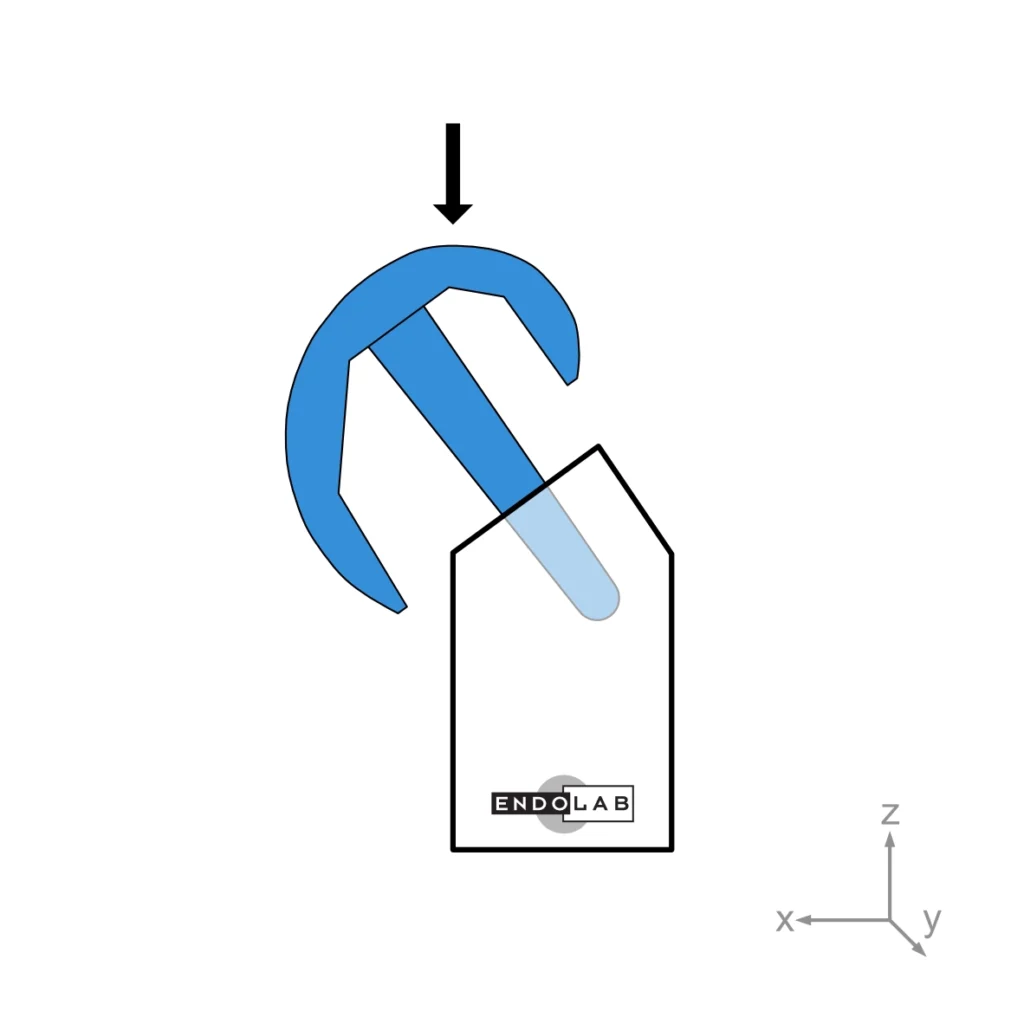PI-53: Fatigue testing of stemmed femoral TKA components
The purpose of the test described in this internal test procedure is to determine the mechanical strength of stemmed femoral TKA components loaded under assumed worst-case conditions.
The femoral component and the stem are assembled according to the customer´s instructions and tightened with a torque wrench (if required).
The load must be applied at an angle of 25° to the neutral position of the femoral component as indicated by Heinlein. This simulates a slightly flexed knee position. A varus malalignment is simulated at a 5° inclination. This alignment leads to loading the medial condyle only.
The suggested embedding level of the stem is 80 mm.
A load of 2 000 N (R=1/10) at a rate of 5 to 10 Hz is suggested to be used for the dynamic tests. When testing modular implants, physiological conditions must be simulated by testing in a 9.0 g/L NaCl solution (or Ringer’s solution) environment at a temperature of 37°C ± 1°C.
The run-out criteria must be set to 10 000 000 cycles.






